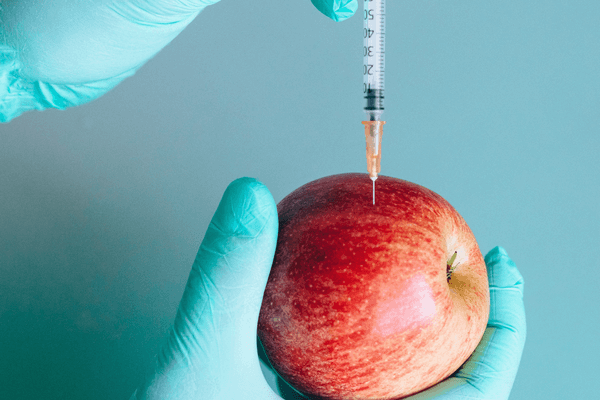
Why Vaccines Matter For Your Pelvic and Sexual Health
In this time of global pandemics, the word vaccine has been thrown around alot. Some views are positive, some are negative, but we hear about vaccinations almost every day. Before COVID, we all got the reminders to get the flu shot every year and to stay up to date on your tetanus shots, but did you know that certain vaccines can help protect your pelvic and sexual health?
What is a vaccine?
Per the U.S. Department of Health and Human Services, a vaccine is “made from very small amounts of weak or dead germs that can cause diseases… It prepares your body to fight the disease faster and more effectively so you won’t get sick.”
There are a few different types of vaccines, too! You may have heard that the COVID-19 vaccine is an mRNA vaccine (or a Messenger RNA vaccine), but the Flu shot is an inactivated vaccine. So what’s the difference?
- Inactivated vaccines: These use a dead version of the germ that causes a disease, and don’t provide immunity as well as live vaccines. These are the kinds of shots you may need multiple doses of, or boosters, to stay protected.
- Toxoid vaccines: Toxoid vaccines use a toxin created by the germ to teach your body to protect against parts of the germ that cause the disease, instead of creating an immunity to the entire germ.
- Subunit, recombinant, polysaccharide, and conjugate vaccines: Phew, that’s a long one. These kinds of vaccines use parts of the germ (like it’s sugar, or proteins). Because they’re using only one part of the germ, it helps your body create a stronger immunity to that germ. These vaccines are also the safest for people with weakened immune systems and those with long-term illnesses and other health problems. They do typically require a booster shot though!
- Messenger RNA vaccines: mRNA vaccines do not contain a live virus. mRNA’s create a protein that provides your immune system the information that it needs in order to create the antibodies that will protect against the virus that the vaccine is for.
- Viral vector vaccines: these vaccines use a modified version of a different virus to teach your immune system what to look out for to protect the body.
- Live-attenuated vaccines: these are the vaccines that contain a weakened, live form of the germ that causes the virus. These vaccines are ones that you should only need one or two doses of to last your entire life – they create a very strong immune response.
Why are vaccines helpful for your health?
The cool thing about our immune system is that we create these antibodies – they’re like little soldiers that protect us from harmful germs and bacteria that cause viruses and diseases. We get vaccines to help those antibodies learn which germs are bad. Think of it like a war plan; we’re introducing the bad guys to our bodies’ defenders, so that they know who to attack.
Vaccines have helped save millions of lives by teaching our bodies how to fight diseases, and sometimes even how to stop us from getting sick entirely. Those viruses didn’t even have a chance to make us sick, let alone kill us! And even more amazing? Certain diseases, like measles, mumps, and polio have all been eliminated in the U.S. because of vaccines.
Note: The CDC defines eliminated as “no longer circulating in a specific area.” Eliminated does not mean that the disease cannot return or that it is completely gone. Eradicated diseases are diseases that have been eliminated worldwide, I.E. smallpox.
Getting vaccinated means giving your body a fighting chance against viruses and diseases.

Which vaccines help with your pelvic and sexual health?
There are three vaccines that you can, and should, get to help protect you against diseases that can affect your pelvic and sexual health.
- The HPV Vaccine: HPV, or Human Papillomavirus, is one of the most common STDs. In a four year period, there were over 45,000 cases of HPV-related cancers reported. The HPV vaccine protects against genital warts and certain types of cancer. This vaccine is a recombinant vaccine, so it uses part of the germ to create immunity.
You will need a series of shots for this vaccine, the number of shots depends on your age. For people ages 9 through 14, the HPV vaccine is given in two shots, with a 6 month window between them. People aged 15 through 45 will need a series of 3 shots over a 6 month period. It is recommended that this vaccine is given to people at 11 or 12 years old, so that they are protected before they become sexually active. - Hepatitis A: Hepatitis A virus can cause a very contagious liver infection. This virus spreads through contaminated objects, foods, and drinks, and of course – infected humans. Hep A is one of the regular vaccines that is given in infancy, in a series of two shots, about six months apart. This is an inactivated vaccine. It uses a dead strand of the virus to teach your immune system what to protect you against.
- Hepatitis B: The Hep B vaccine is a subunit, so like the HPV vaccine, it uses just a part of the germ to help build up immunity. Hepatitis B, like Hep A, attacks the liver. In the U.S., we see about 22,000 new cases a year, with about 2,000 deaths. This number could be a lot larger without the Hepatitis B vaccine.
Contact with an infected person’s blood is the most likely way to contract Hep B, but sexual contact and saliva are also spread factors. The Hepatitis B vaccine is given in a series of 3 shots, the first of which is usually given at the hospital within 24 hours of birth. The series is normally finished out by the time someone is 18 months old.
Where can I get vaccinated?
Although Hepatitis A and B vaccines are standard to be received in infancy, if you did not receive these vaccines as a child, it is recommended that you get them to protect your pelvic and sexual health!
Wondering where you can get vaccinated? Check out the U.S. Department of Health and Human Services’ website to find a vaccination location near you.
If you are dealing with side effects from HPV, cervical cancer, Hep A or Hep B symptoms, I am always here to help. No matter where you’re located in the world, my free 20-minute discovery calls are open to you.
Need additional resources? Check out my instagram, blog, and Youtube Channel for more information about how to protect your pelvic health.
More content you may like:
Some of the links on this page may be affiliate links. Laura Meihofer’s LLC is a participant in the Amazon Associates Program and others, as an affiliate advertising program designed to provide a means for sites to earn advertising fees by linking to products Laura organically uses and trusts. If you purchase a product through an affiliate link, your cost will be the same, but Laura will automatically receive a small commission. Your support is greatly appreciated and helps her spread her message!








Sorry, the comment form is closed at this time.